 World
World

2018 was a turbulent year in world events, full of ups and downs. Below are the top 10 world events of 2018 as selected by the Vietnam News Agency.
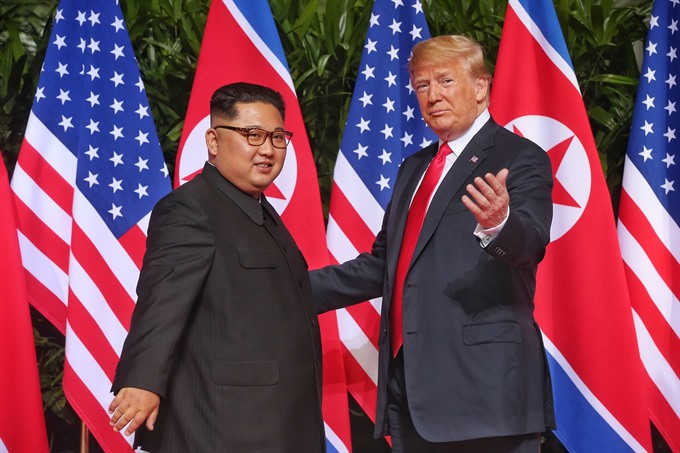 |
| US President Donald J. Trump (right) and North Korean leader Kim Jong-un (left) meet at the start of a historic summit at the Capella Hotel on Sentosa Island, Singapore, June 12, 2018. The summit marks the first meeting between a sitting US President and a North Korean leader. — EPA/VNA Photo |
2018 was a turbulent year in world events, full of ups and downs. Below are the top 10 world events of 2018 as selected by the Vietnam News Agency.
1. A turning point in the Korean peace process: Affairs on the Korean Peninsula recorded a breakthrough change with several historical events taking place in 2018. Inter-Korean summits resumed after a gap of more than a decade, adopting the Panmunjom Declaration for Peace, Prosperity and Unification of the Korean Peninsula on April 27 and the Pyongyang Joint Declaration on September 20. In addition, the first-ever summit between a sitting US president and the Democratic People’s Republic of Korea was held in Singapore, issuing a Joint Declaration on June 12. These events helped turn the situation from the edge of war to dialogue and détente, opening hope of a denuclearised, peaceful and prosperous peninsula.
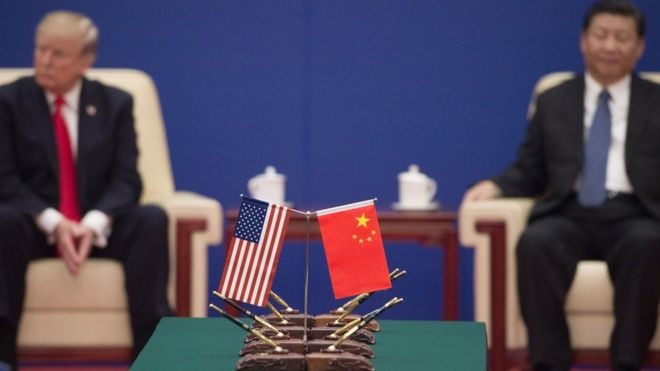 |
| US President Donald Trump (left) and China’s President Xi Jinping attend a business leaders event inside the Great Hall of the People in Beijing on November 9, 2018. — AFP/VNA Photo |
2. US – China confrontation: A trade war between the US and China with a series of tariff paybacks significantly impacted global trade, economies and financial markets, dimming the forecast for global economic growth this year and in 2019, pushing many countries to change their trade policies to mitigate risks. The dispute has also expanded into other areas like technology, foreign diplomacy and the military, reflecting hardening competition between the two sides.
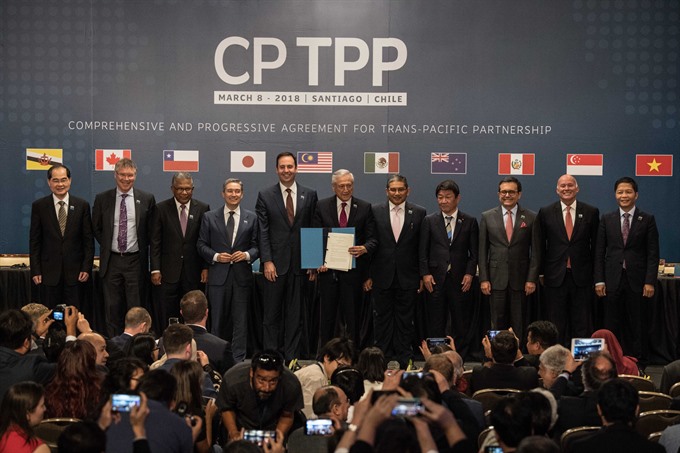 |
| Chilean Foreign Minister Heraldo Munoz (6th from left) and delegates from other countries attend a signing ceremony in Santiago, Chile, on March 8, 2018. Ministers from 11 countries gathered in Chile’s capital to sign the Comprehensive and Progressive Agreement for Trans-Pacific Partnership (CPTPP). — XINHUA/VNA Photo |
3. CPTPP signed and about to enter force: The Comprehensive and Progressive Agreement for Trans-Pacific Partnership (CPTPP) – a replacement for the Trans-Pacific Partnership Agreement (TPP) – was inked on March 9 and will take effect in January 2019. With 11 member nations including Việt Nam, the CPTPP is one of the most comprehensive trade deals ever reached. Once fully implemented, the pact will cover a market of 500 million consumers, with a combined GDP accounting for 13.5 per cent of global GDP. The negotiation of the CPTPP following the withdrawal of the US is significant to maintaining investment links and boosting free trade in the Asia-Pacific region amid growing protectionism.
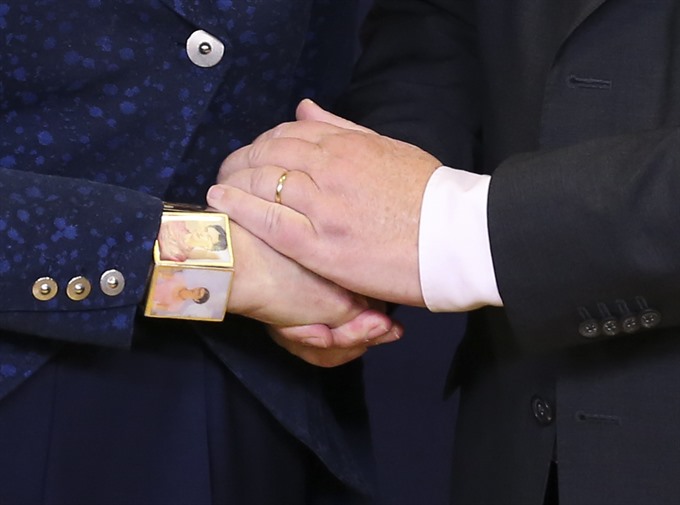 |
| European Commission President Jean-Claude Juncker (right) shakes hands with British Prime Minister Theresa May during their meeting in Brussels, Belgium, on November 24, 2018. — XINHUA/VNA Photo |
4. Thorny path to Brexit: After very tough negotiations for the UK to leave the EU, the two sides agreed on a draft political declaration on November 25 to shape their future relationship. However, Brexit progress is still plagued with latent uncertainties as it faces barriers from the British Parliament, which is divided over controversial customs conditions. The future of Brexit is unpredictable and exiting without a deal remains a possibility.
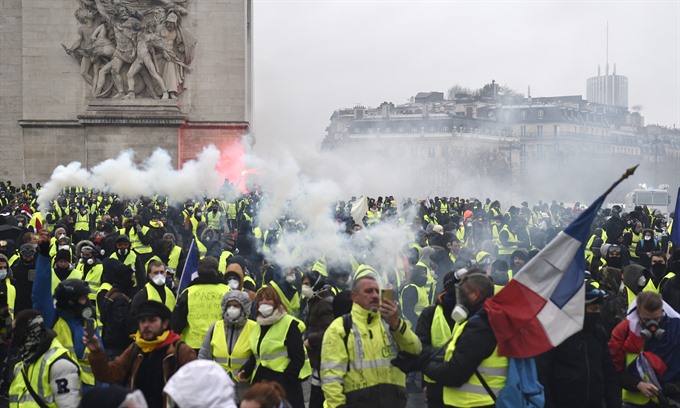 |
| Demonstrators gather at the Arc de Triomphe on the Champs Elysees avenue in Paris during a protest of yellow vests (Gilets jaunes) against rising oil prices and living costs, on December 1, 2018. — AFP/VNA Photo |
5. Riots in Paris, France: The “yellow vests” movement, motivated by rising fuel taxes, expanded quickly and escalated into riots, described as the worst in France for decades, and even spread to other countries. The movement has exposed deep social and economic divisions in France, forcing President Emmanuel Macron’s government to make concessions.
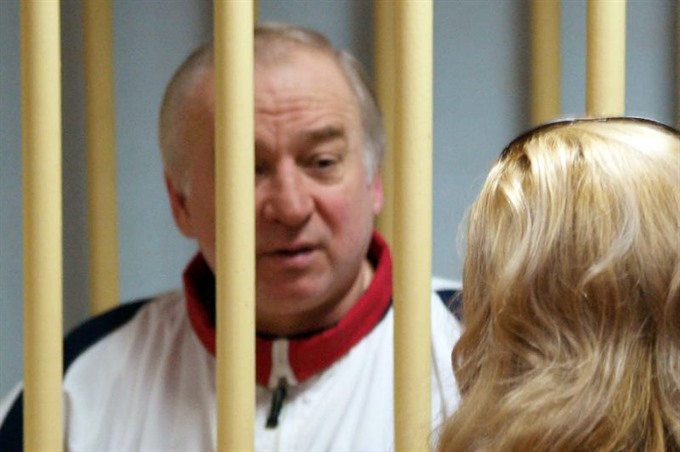 |
| Former Russian double agent Sergei Skripal was poisoned along with his daughter in March in the English city of Salisbury. — AFP/VNA Photo |
6. Tension between Russia and Europe: Relations between Russia and Europe have almost reached the lowest level in years after former Russian double agent Sergei Skripal was poisoned in the UK in March. The confrontation was also reflected in some of the world’s most pressing issues like in Syria, Ukraine and the Korean Peninsula. Tensions grew following the launch of US investigations into alleged Russian interference in the 2016 American presidential election. The US has not only added a series of sanctions on Russia, but also threatened to withdraw from the Intermediate-Range Nuclear Forces Treaty (INF), raising concerns about a new Cold War. Meanwhile, the Russian government said these moves were part of a campaign co-ordinated by Western governments to harm Russia’s prestige and isolate the country.
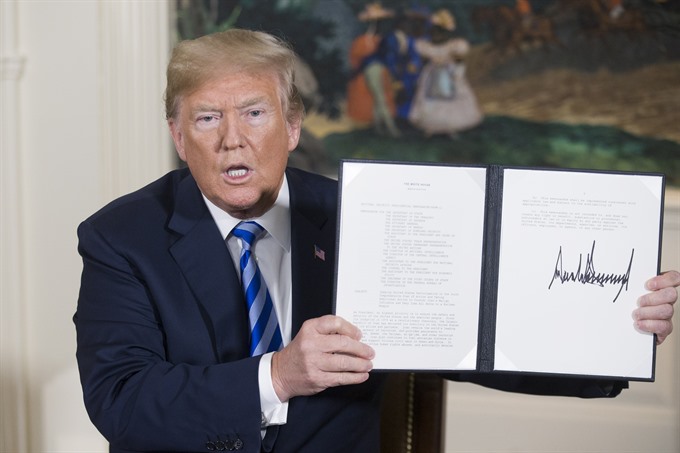 |
| US President Donald J. Trump holds up a national security presidential memorandum on Iran that he signed in the Diplomatic Reception Room of the White House in Washington, DC, on May 8, 2018. Trump announced plans to pull out of the Iran nuclear deal. — EPA/VNA Photo |
7. The US pulls out of the Iran Nuclear Deal: Neglecting international rules and norms, US President Donald Trump on May 8 unilaterally withdrew from the nuclear agreement with Iran – which was finalised by his predecessor Barack Obama’s administration in 2015 – and restored sanctions against Iran. The move has threatened the economic interests of many countries and caused cracks in the relationship between the US and its European allies. Many countries criticised the choice for damaging trust in the international order and said it could increase instability risks in the Middle East.
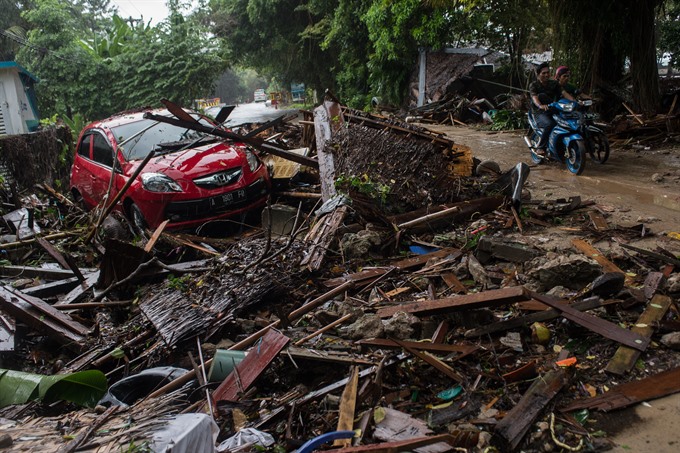 |
| A car covered by debris on December 23, 2018, one day after a tsunami hit the Sunda Strait in Pandeglang, Banten province, Indonesia. — XINHUA/VNA Photo |
8. Earthquake and tsunami in Indonesia: A strong earthquake and associated tsunami that hit Sulawesi island on September 28 and a tsunami, triggered by an eruption of the Anak Krakatau volcano in the Sunda Strait – which lies between Sumatra and Java islands – on December 22 took the lives of at least 2,370 people, injured more than 1,400 others and left some 5,130 unaccounted for. In late July and early August, Lombok island experienced two earthquakes of 6.4 and 7 magnitude, killing more than 400 people, destroying dozens of thousands of houses and temples and forcing approximately 20,000 to evacuate.
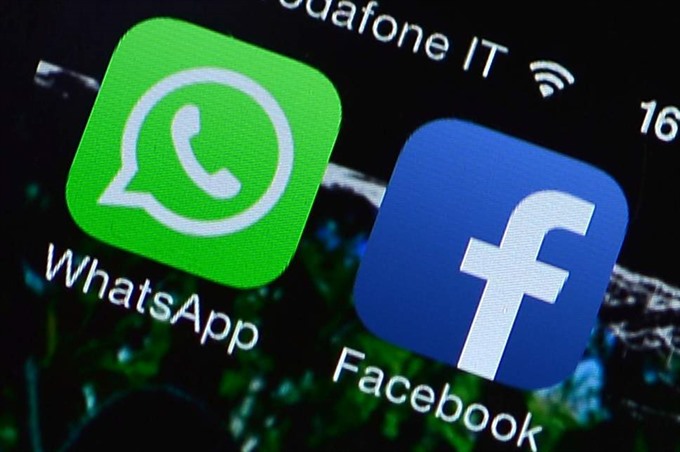 |
| Mark Zuckerberg told Brazilians to use Facebook Messenger while WhatsApp is blocked. — AFP/VNA Photo |
9. Fake news and user data leaks on social networks: The spread of “fake news” on social media platforms, from Facebook to Twitter and Whatsapp, have caused real consequences. Fake news has been accused of contributing to the manipulation of election outcomes, provoking violence, deepening ethnic conflicts, causing social divisions and triggering political instability in many nations. The reputations of tech giants like Facebook and Google have been shaken following their involvement in security breach scandals that exposed millions of user accounts. Facebook’s stock lost US$120 billion in market value at one point and the firm’s revenue growth decelerated significantly this year. The leaders of Facebook, Twitter and Google had to testify before the US Congress and ultimately vowed to come up with measures for a healthy cyberspace.
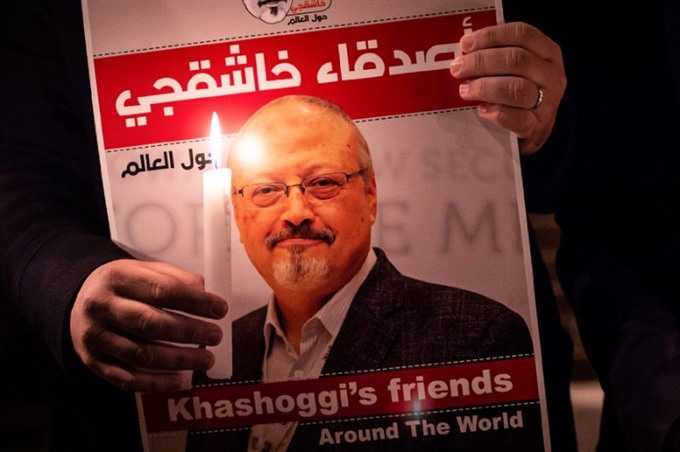 |
| Jamal Khashoggi was last seen entering the Saudi consulate on October 2 to obtain paperwork for marriage procedures. — AFP/VNA Photo |
10. Journalist Jamal Khashoggi murdered: The murder of Saudi Arabia journalist Jamal Khashogg inside Saudi Arabia’s consulate general in Istanbul, Turkey on October 2 shook global public opinion. It set off a diplomatic crisis between Saudi Arabia and its Western allies and caused the country’s regional reputation to deteriorate. Several countries have announced travel bans on Saudi citizens and urged the United Nations to launch an international probe into the case. The US Senate voted to end military aid for Saudi Arabia in the war in Yemen, while the German government has halted all arms trade with the country, and Canada is considering cancelling sales of armoured vehicles to its Middle Eastern ally. — VNS




